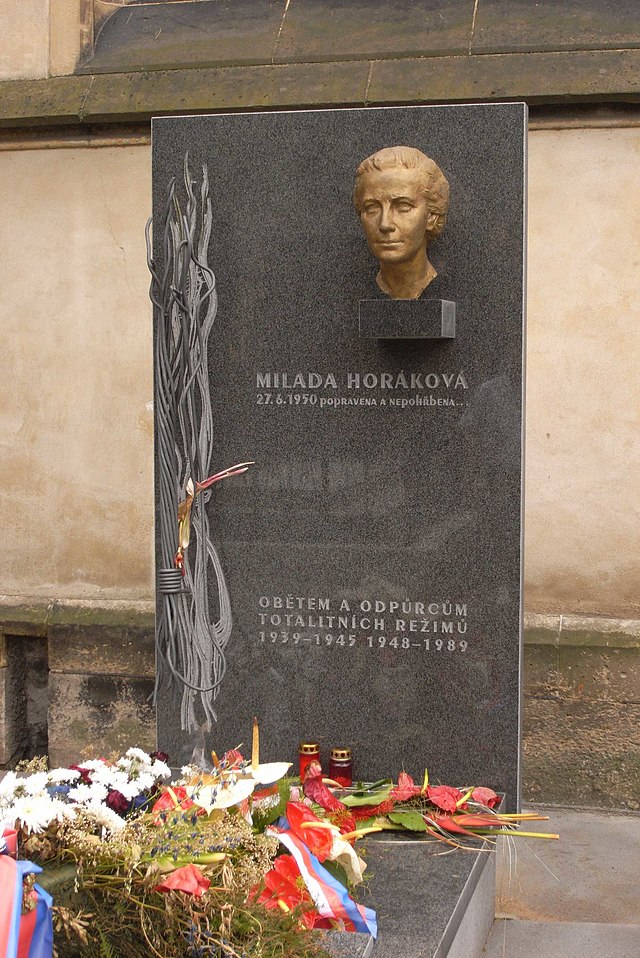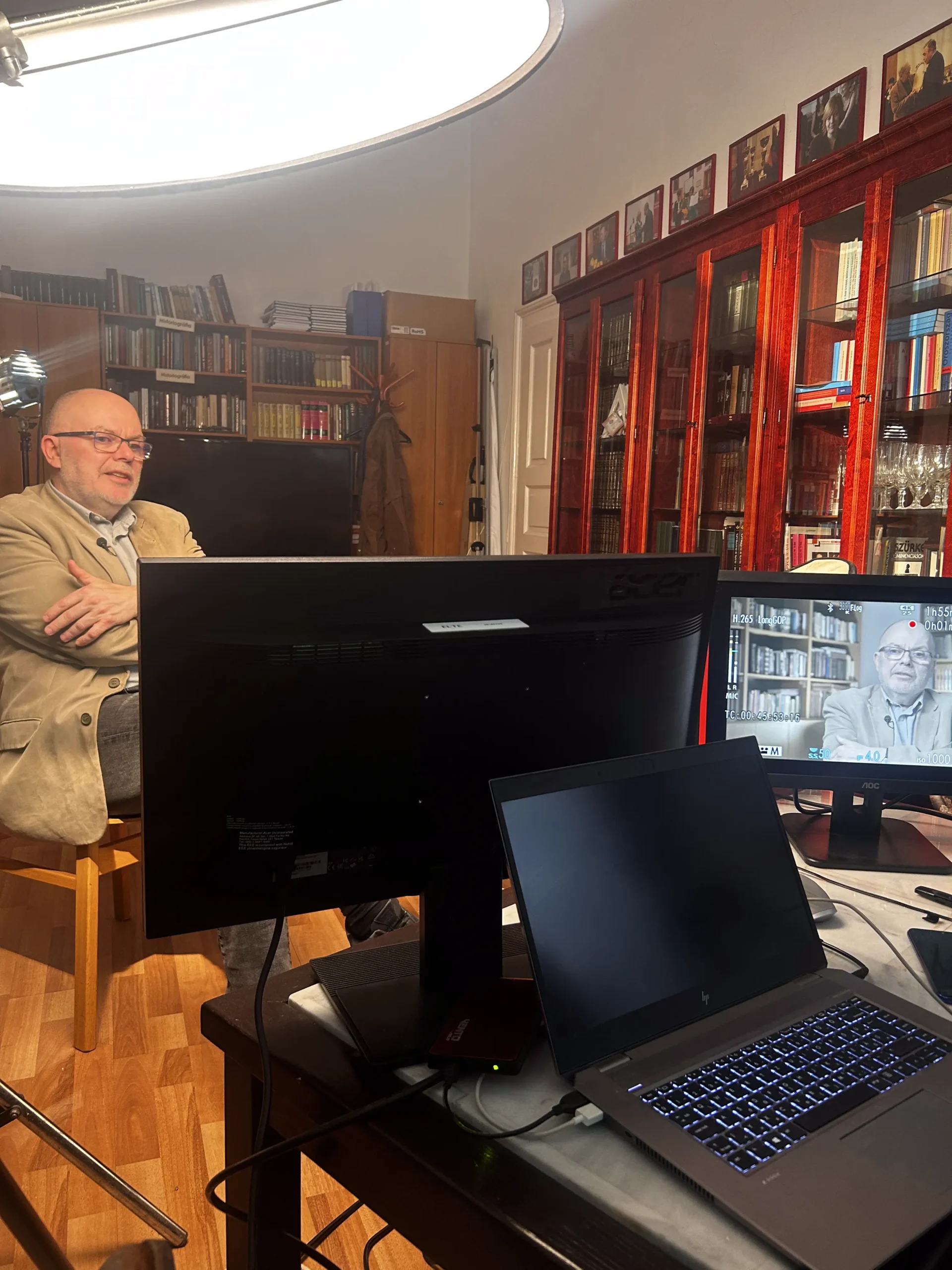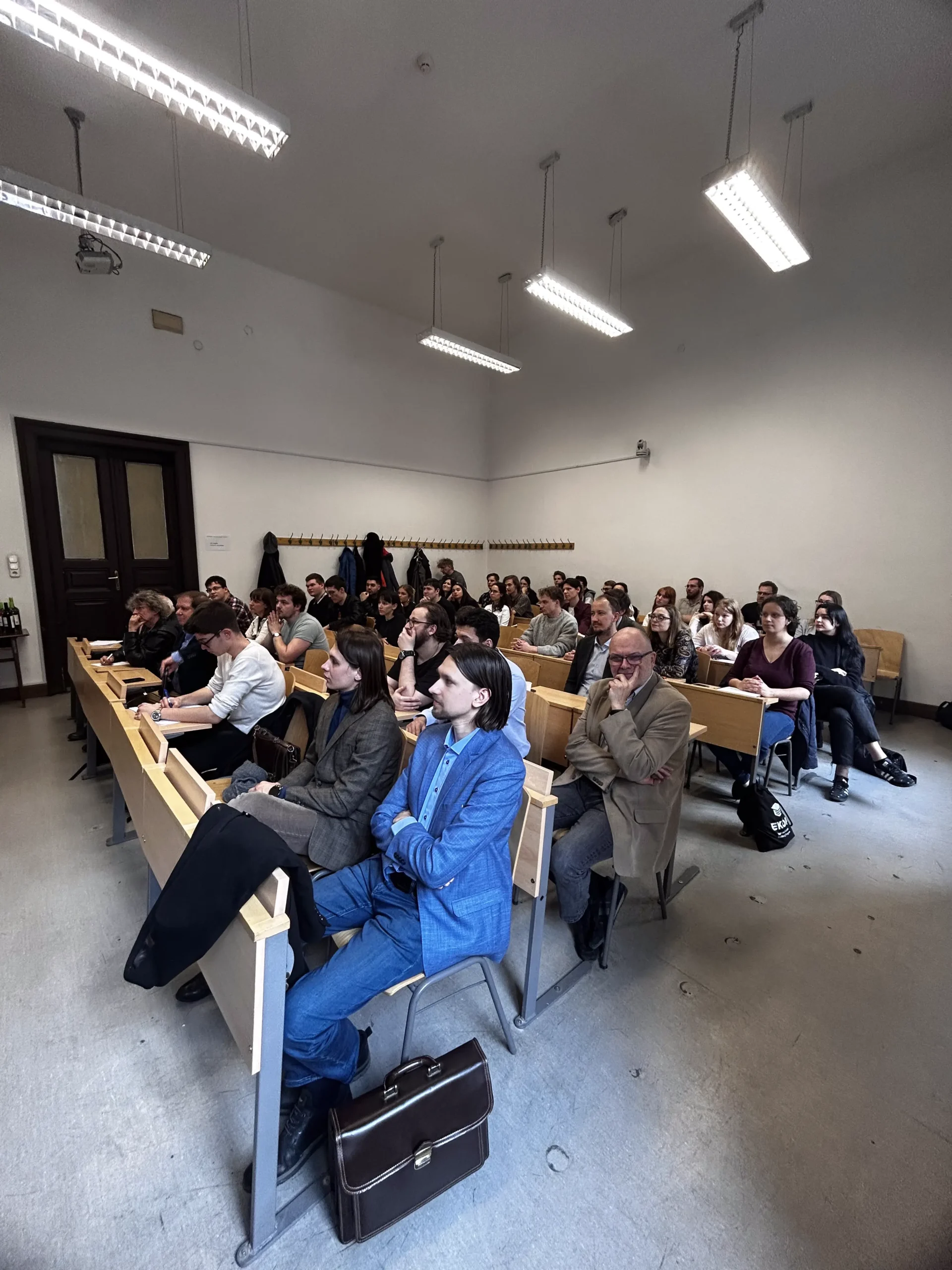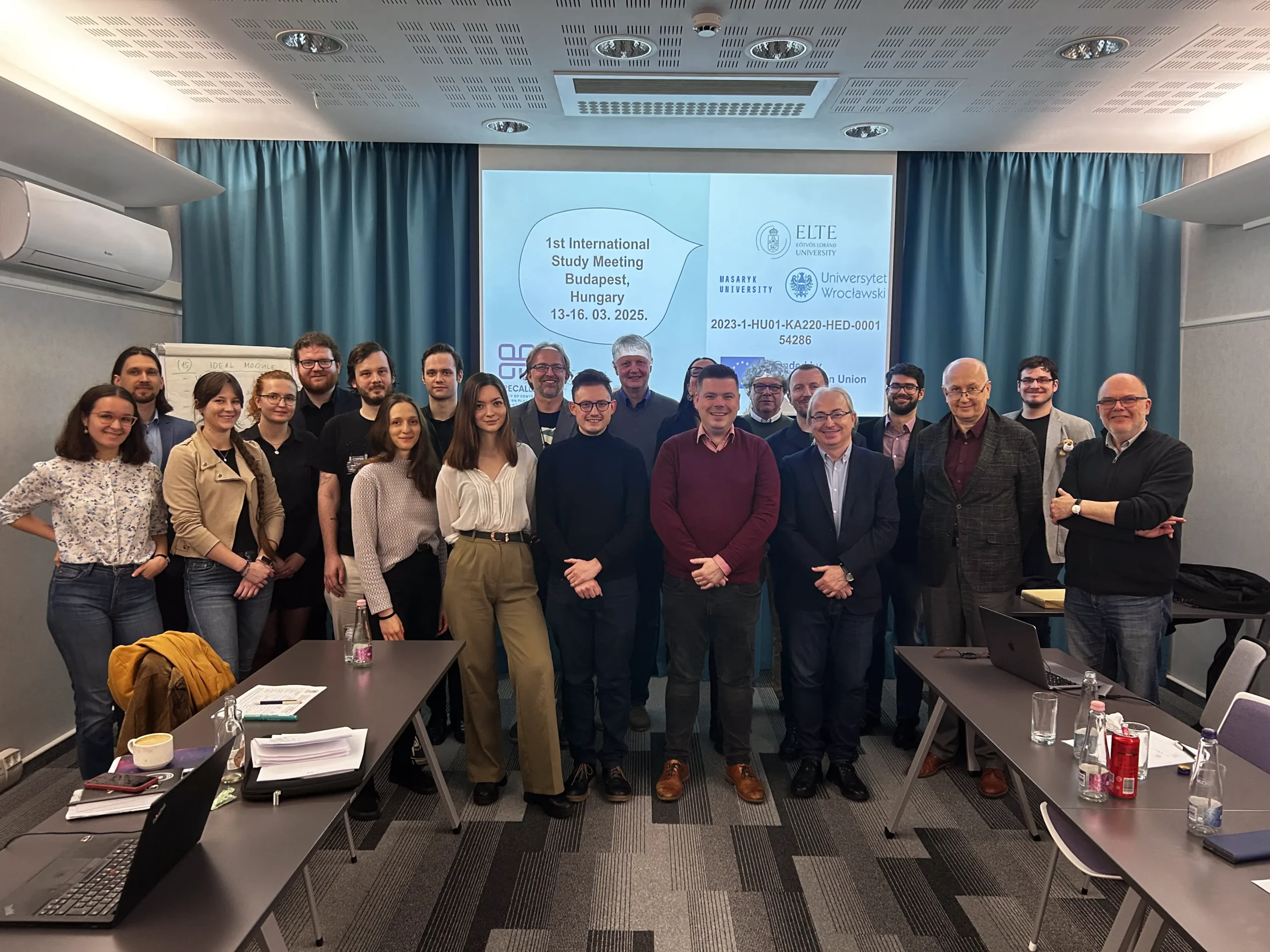Milada Horáková – Praha, Vyšehrad, Symbolic grave
Fact of the Czech figure „Suffrage movement”
Part of the „The emancipation of women” topic
Milada Horáková, a lawyer and prominent figure in the women’s emancipation movement, became active in the women’s movement already during her studies at Charles University. Under the influence of Františka Plamínková, she joined the Women’s National Council, where she applied her legal knowledge to the legislative process. Her aim was to improve the status of women in society, particularly in the labour market. Horáková’s work was interrupted by the Nazi occupation and subsequently she became actively involved in the anti-Nazi resistance. This did not escape the attention of the Gestapo, and in 1940, she was arrested and subsequently imprisoned.
Unlike Plamínková, who was executed by the Nazis, Horáková survived the war and resumed her public life. She became a Member of Parliament for the National Socialist Party and led the Czechoslovak Women’s Council. In these roles, she opposed the rising communist regime, which made her a target of a fabricated political trial designed to discourage other potential opponents of the regime. During the trial, Horáková was sentenced to death on false charges and executed on June 27, 1950. Her remains were never returned to her family, and the location of the remains unknown to this day. A symbolic grave at Vyšehrad Cemetery serves as a reminder of her violent death.





